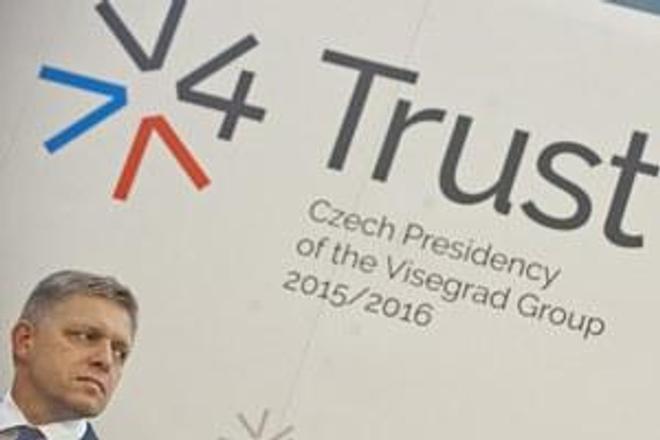LAST month I detected a faint glimmer of optimism for the future, in the warm sunshine of a Slovak summer.
I spoke too soon.
For now, as autumn draws on, fear stalks the land. Not just of undeserving “economic migrants” (who are not, under any circumstances, to be confused with the Slovak nationals currently living and working in western Europe), or of infiltrating terrorist cells (if this is really such a danger, perhaps the government can explain why we keep accepting, without public debate, ex-Guantanamo detainees, most of whom later abscond?), or even a supposed crisis of identity that threatens the “thousand-year Christian traditions on which the Slovak nation is based” (thank you Matica Slovenská: your flair for aligning with the wrong side of every debate is as unerring as it is predictable).
No, it is also the fear of being isolated in Europe. Only a few short weeks ago Slovakia was standing proud, the standard-bearer of fiscal rectitude in the Greek crisis (my goodness, whatever happened to that?). Now, bereft of the fig-leaf of V4 solidarity after Poland broke cover and backed Europe-wide compulsory allocation of asylum seekers, we risk being cast as the black sheep of the European family, with only the formidable shadow of Mr Orbán to shelter us from utter obloquy. Oh sweet irony!
Speaking of which, it is my happy duty to report that Budapest’s Keleti railway station – the scene only a few weeks ago, you will recall, of chaos on a seemingly biblical scale, with thousands of refugees camped out waiting for trains to Germany – is now deserted, save for the panhandlers that have resided there since time immemorial. Apparently the Hungarian capital wasn’t quite as close to Armageddon as we were led to believe...
Amid the xenophobic fear mongering, shameless politicking and sheer inanity that the refugee crisis has engendered in the Slovak public space, it is perhaps most useful to commend at least one person for consistently speaking some sense: step forward long-serving MP František Šebej.
On September 17, he told the TASR newswire: “If there’s anything threatening security right now, it isn’t the influx of refugees but negative emotions that could erode the mood of society. Fear and hatred can dissolve any community, state or nation, and they spread like cancer.”
Hear, hear: one can only hope that he speaks for more of the population than his more excitable and irresponsible colleagues. Unfortunately, Slovakia really does have good reason to fear the omens from Germany – but not just over its churlish attitude towards asylum seekers.
The scandal over the diesel emissions of millions of Volkswagen vehicles, which the company has now confessed to deliberately lying about, is far more ominous for Slovakia than the refugee crisis. This country's largest private investor, on whom tens of thousands of well-paid jobs depend, is grappling with a crisis whose scale has yet to dawn. The bill will surely run into tens of billions, and VW must now be reviewing its plans worldwide: Slovakia will not be spared.
With all these bleak tidings from abroad, it was almost with a sigh of relief that news emerged in late September of a good old-fashioned, home-grown public health scandal. All the familiar elements were present: a confused tale involving expensive but nebulous taxpayer-funded contracts; an indignant, politically-appointed director-general; and the trifling matter of business worth €14 million that had been awarded to his 77-year-old aunt.The director has stepped down, and been duly praised by the government for taking 'political responsibility' – whatever that may be. All manner of investigations have been promised, but the courts and prosecutors can presumably rest easy that their services will not be required – as they never are in these cases.
With jihadist barbarians at the gates (or so we are told), such are the noble traditions that institutions like the Matica Slovenská labour to preserve. To paraphrase Robert Browning: The Slovak God’s in His heaven – All’s right with the world!



 We risk being cast as the black sheep of the European family. (source: TASR/AP)
We risk being cast as the black sheep of the European family. (source: TASR/AP)